What are local ecosystems and why is it important to build them?
No company or organization lives in an empty space. Although we think about our business and about our people on a global and national (or perhaps even broader) scale, our home address is in Košice region. Successful regions are vibrant, offer good education, aim at good quality of life – if our region is successful, we as a company are more likely to be an attractive employer and we will be able to succeed as well.
What are the best strategies to turn the potential of our region into tangible results?
A lesson learnt from many other countries is based on creating a working “triple helix”. It is about a meaningful connection between private companies, public governance institutions and academia - schools and universities. The key is the word “meaningful” - these vastly different organizations see each other as partners, they agree on common goals and priorities and work together to make those goals a reality. The best strategy is simply in working together, in taking actions and doing the work.
How can a big international company work locally and deliver results which help the region?
A big international player can start by acting as a role model for the local business landscape. We showed how to care for the employees during a crisis or how to interconnect our technical know-how with the competencies of local universities, for example. We demonstrate our interest by interacting with local startups and ideators. We are the first to pilot innovations in finding and developing talents – be it through a dual program or scholarships. We can work with local clients to deliver software applications that help with the local pains – be it in public administration, in schools or even in a hospital. All the examples mentioned above are business topics – the list can be much longer if we start talking about the role modeling CSR.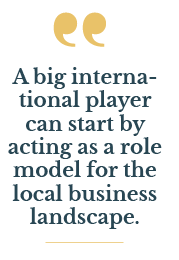 Support does not always mean spending or donating cash. In fact, most of our contributions come “in kind”; that is through our know-how, our voluntary teaching at schools, coaching at incubators or helping the refugees. We connect help for the region with our eco-footprint, for example, by reusing and donating close to a thousand notebooks to local schools and communities. Support can take shape of a joint research project with local academic teams – that strengthens them and inspires us.
Support does not always mean spending or donating cash. In fact, most of our contributions come “in kind”; that is through our know-how, our voluntary teaching at schools, coaching at incubators or helping the refugees. We connect help for the region with our eco-footprint, for example, by reusing and donating close to a thousand notebooks to local schools and communities. Support can take shape of a joint research project with local academic teams – that strengthens them and inspires us.
Could you tell us more about such joint projects of DT ITSO SK and local institutions?
We have been one of the core partners in the Košice IT Valley cluster for close to 15 years. It is not only a formal membership for us – our managers lead it by chairing its executive board, being part of its supervisory board and, of course, being the champions of its activities. This year we also started supporting a new regional institute – Cassovia New Industry Cluster (or CNIC); this time by entering together into a joint project proposal.
Importantly, our company has shown how the principles of dual, practice-oriented education can be applied not only to handcrafts but also to IT. I don’t mean it as boasting, but we helped local schools – SPS Elektrotechnicka or SOS Informacnych Technologii – make real leaps and get to the top tier not only regionally.
Our innovative teams have very actively worked with local doctors, therapists or visually impaired – in each of these cases, the effort resulted in an innovative mobile application. Thanks to these collaborations, we brought new solutions to the local ecosystem - making use of virtual reality, augmented reality, smart positioning, natural language processing and more.
What are the areas in which DT ITSO SK can be a big partner locally?
To put it very bluntly, we have ambitions to be a business partner to the local stakeholders, an educational partner to our schools and universities, a strategic partner for the local governance bodies, an inspirational partner for our children (or teachers), an actively caring partner for local communities...
What are the most important areas for innovations in the region?
It is difficult to pick one or two. It would be unfair to all those innovative minds I come in touch with. Let’s mention, for instance the fact that we were entrusted with the development of a new generation product called Open Sovereign Cloud. A product with a high degree of data protection, data provenance and control over data sharing. Something with a potential to digitize not individual companies but more complex supply chain clusters of companies, too.
We also see a space for innovations in the healthcare area. Thinking about our healthcare pilot products like CognityCare – using virtual reality and a smart application as a virtual assistant – opens the diagnostic and therapeutic processes to more patients and helps to them more effectively.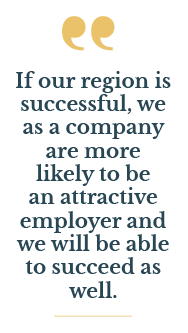 Automotive – we hear a lot about smart cars. What does that mean? Is it that a car can educate you or your children while traveling? Or help you choose the right place to eat, sleep, have fun in a city you don’t know? We are exploring how our experiences with augmented reality can be ported to in-car microservices, shifting from a mobile phone as the primary interactive medium to the car itself, its screens, and surfaces...
Automotive – we hear a lot about smart cars. What does that mean? Is it that a car can educate you or your children while traveling? Or help you choose the right place to eat, sleep, have fun in a city you don’t know? We are exploring how our experiences with augmented reality can be ported to in-car microservices, shifting from a mobile phone as the primary interactive medium to the car itself, its screens, and surfaces...
Why is it important to collaborate with academia?
We can think of multiple perspectives here. Firstly, local students and later graduates are keen on finding a place where they can put their acquired skills to the test, to apply them to real issues. When they join our company, they can bring new viewpoints, new ideas and values to our ways of working.
Secondly, getting through a school is just one phase in everyone’s life – joining a strong local player may help a student to turn their ideas and dreams into reality. It helps them advance and increase both their expertise and experience.
Thirdly, best ideas come to life in diverse teams – if we combine academic and business experiences, joint projects can become more ambitious, more interesting, and eventually make a greater impact.
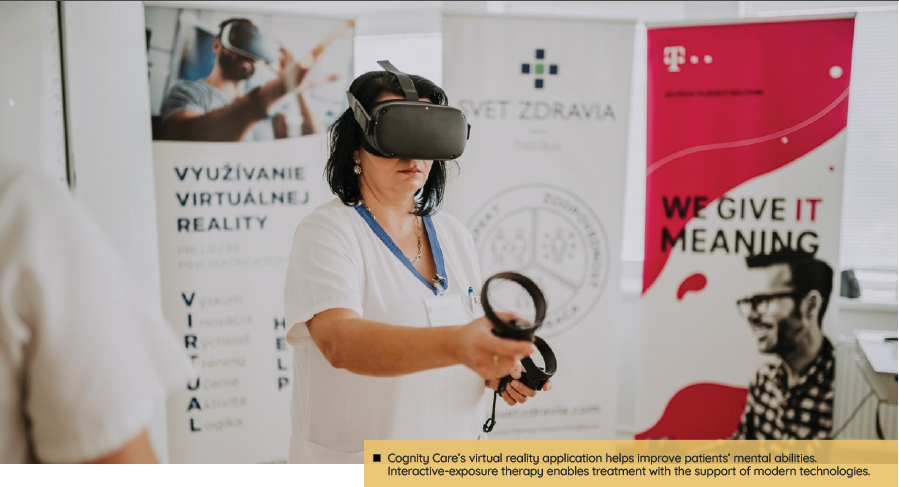
What are the most interesting collaborations of DT ITSO SK and universities or other educational institutions?
We revamped our T-UNI program and extended it from one university to others in broader region. We brought in new lectures to the students, focusing on digital trends, cybersecurity, latest trends in cloud computing and in BI. We have dived deeper into the world of agile with the students from several faculties. We got our first graduates from the T-UNI scholarship program who started with us, for example as data scientists.
Together with the self-governing region and local schools, we pushed for increasing the number of students in IT specializations close to threefold – reaching about 360 places offered regionally to secondary school candidates.
In the context of national Digital Skills initiative, our volunteers from the T-Kids group qualified more than 100 teachers and worked with close to 250 children on a range of digital challenges (robots, software, design) in an agile style.
Very recently, we have launched a new call, a research grant scheme – a focused grant for public universities! We invested into supporting a team at FEI (TUKE) to help us improve our natural language processing and eventually chatbots. In the next batch, we plan to engage economists and social scientists while exploring the developments of the labor market and its specifics in areas related to our strategy.
Why is collaboration between the public and the private sector important? How can it support the development of the social and economic situation of the region?
Startups are a good example. They are not contrary to the corporate culture as many blogs and news stories claim. In fact, for a startup to develop in the right direction, it is important to obtain support from a public incubator or a public university – to find its first home, first coach. It is equally important to get in touch with companies, like ours. Why? To learn some good practices about acquiring and managing cash, understanding the market, analyzing market trends, exploring unusual business models, or simply talking to a seasoned senior manager. Many start-uppers begin as students and seek some extra income through part-time jobs – another area where the interests of public and private players may either crash or work in synergy.
DT ITSO SK signed a Memorandum with Cassovia New Industry Cluster – what will it bring to the region?
CNIC or Cassovia New Industry Cluster is an ambition of a broader local ecosystem that stems from the academia and aims to further develop the Košice region as a place for next-gen innovations, so to say. Within CNIC, local partners discuss the support for deploying Tachyum, a promising new generation microprocessor to become a foundation for a supercomputing center. We speak about exploring emerging technologies of virtual or augmented realities in the production and manufacturing sectors, thus helping local companies be more competitive and more attractive for investors.
Martin Džbor, Head of Strategy Development & Innovation at Deutsche Telekom IT Solutions Slovakia

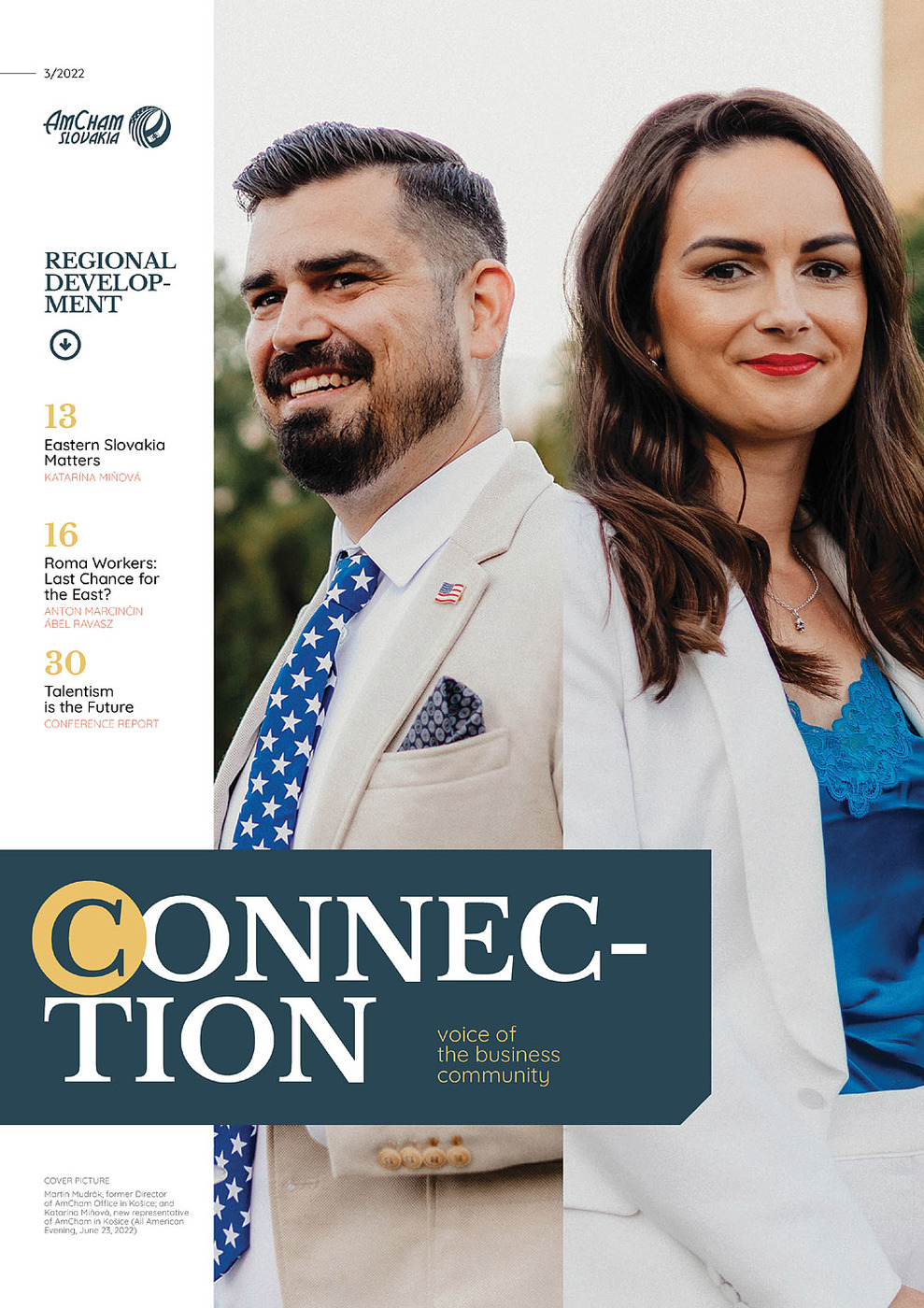
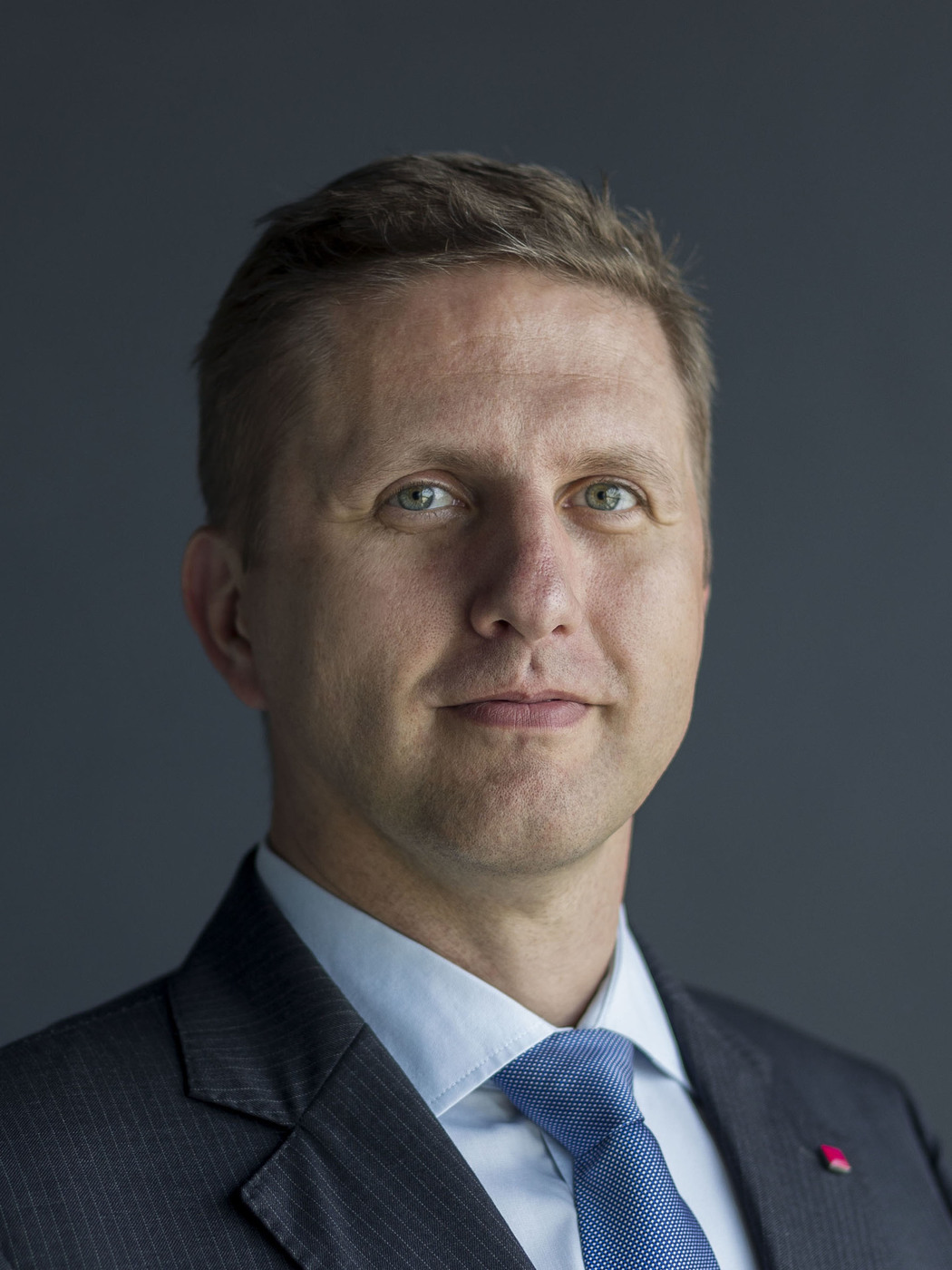
Follow us